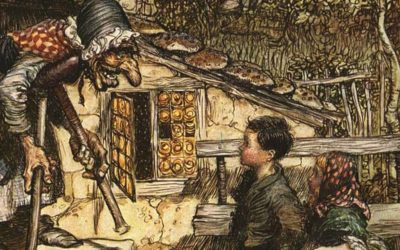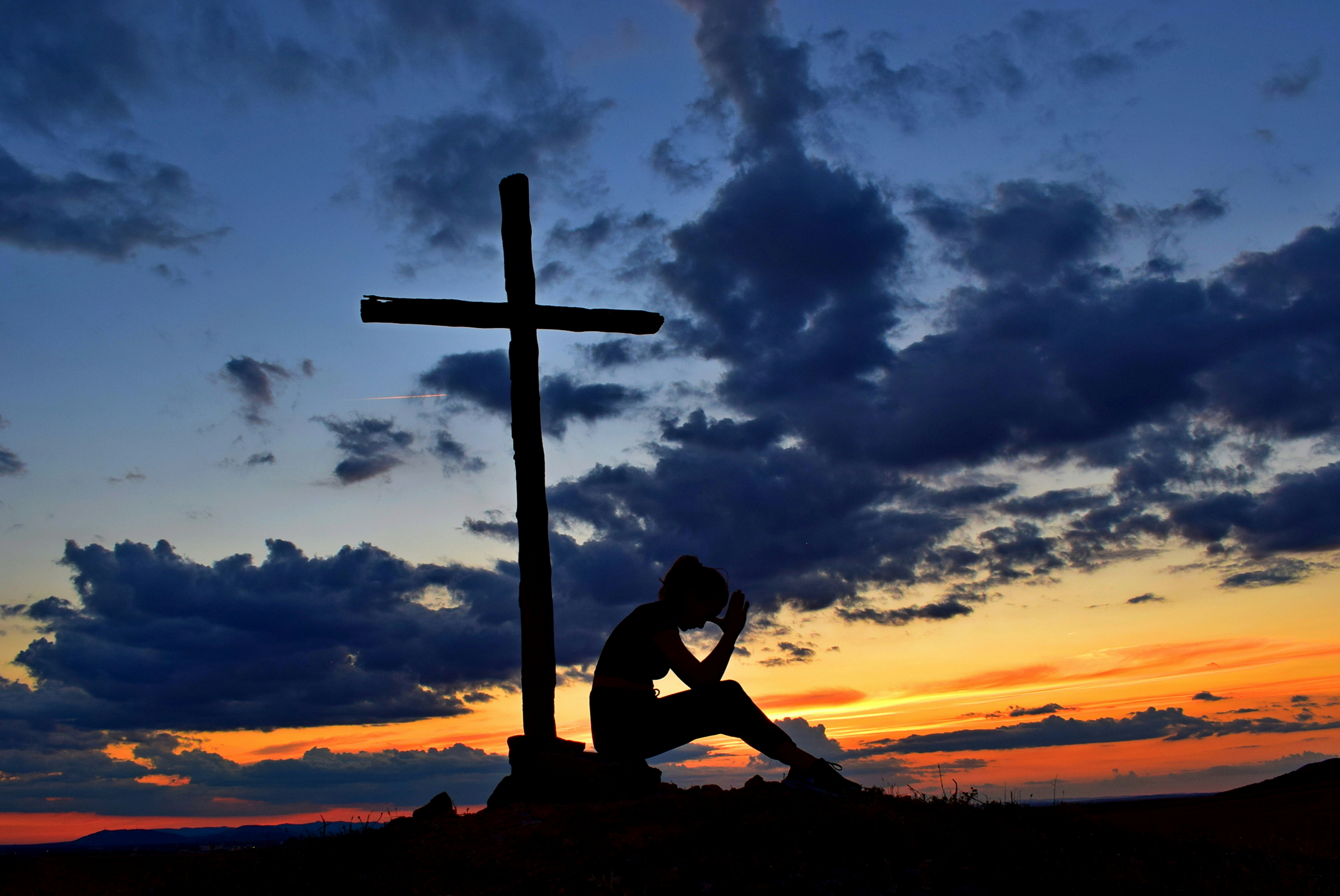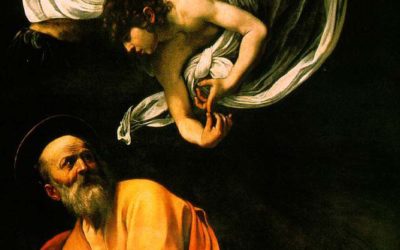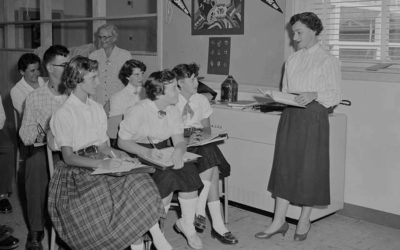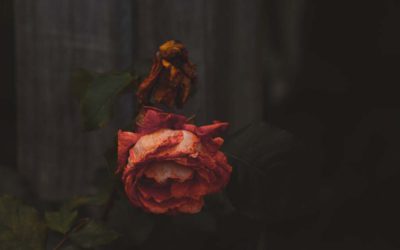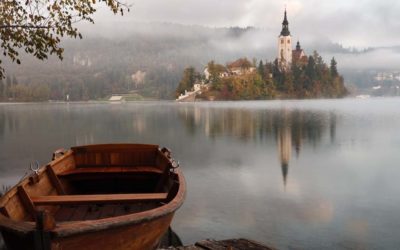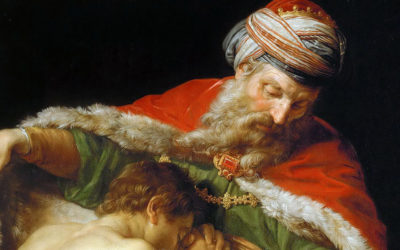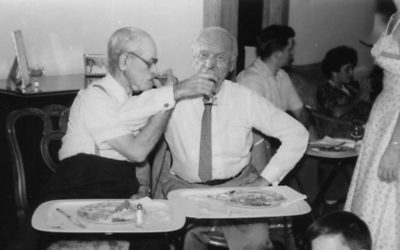Fairy tales are fierce narratives of human shadow and its transformation. Hansel and Gretel depicts raw childhood trauma: parents abandon their children in the forest in order to feed themselves.
Dreams Of God: A Jungian Philosophy of Theophany
Jul 11, 2022
When a dream presents God (personally or symbolically), it typically signifies a constellation of the Self, the regulating center and totality of your Psyche. We experience this as other, and it evokes a religious feeling. It often brings a question: “Who is the maker of dreams, what is the status of that superior intelligence, and how does it relate to my religion, ethics, and matter itself?”
DAIMON: Demon or Destiny?
Jul 7, 2022
The daimon, guiding spirit of individual destiny, was discussed by ancient Greek philosophers. Daimons were particularly linked to creativity and life force and described as lesser deities, divine messengers, and determinative fates. For Jung, “daimon” was a synonym for that part of the unconscious concerned with life purpose, and it spoke through intuition and dreams. Ego’s task is transforming the autonomous power of the daimon into authentic expression in life. Jungian analyst and author James Hillman says, “The soul of each of us is given a unique daimon before we are born, and it has selected an image or pattern that we live on earth. This soul-companion, the daimon, guides us here; in the process of arrival, however, we forget all that took place and believe we come empty into this world. The daimon remembers what is in your image and belongs to your pattern, and therefore your daimon is the carrier of your destiny.”
Archetypal Aspects of School
Jun 23, 2022
Schools have existed across cultures and throughout time; the knowledge they transmit leads us out of childhood, shapes our values and world view, and grooms us for citizenship.
DEATH: A Jungian Perspective
Jun 10, 2022
Awareness of death can help us create an intentional life—one that serves the movement of soul toward wholeness. Jung realized that although we experience death as “a fearful piece of brutality,” the unconscious images death as celebration.
Hans Christian Andersen: Persona & Personhood
Jun 2, 2022
While many of Hans Christian Andersen’s 19th-century stories have moralizing motifs, their universality and depth places them among ageless fairy tales.
VOCATION: Answering the Call
May 12, 2022
Vocation, once associated with serving God through service to others, is now most strongly associated with a career having personal worth. Vocation spans a range of needs and values: commitment to making ends meet, striving for material rewards and social status, or the more internal satisfaction of research, helping others, and artistic expression. Freud considered love and work the cornerstones of our humanness, and Jung said, “In the final analysis, we count for something only because of the essential we embody, and if we do not embody that, life is wasted.” A discernment process is essential to determining the difference between a true calling and ego ambitions, what we want versus what we can have, and distinguishing dream from dedication. Ultimately, however, vocation is a state of being—so perhaps we can invest the work we have with a sense of call.
THE PRODIGAL SON as Shadow, Ego & the Self
May 6, 2022
The allegorical tale of the Prodigal Son illustrates Jung’s basic understanding of the structure and development of the psyche.
CAUSAL OR CREATIVE: Is History Destiny?
Apr 21, 2022
The Roman god Janus had two faces. They looked in opposite directions, representing dualities, especially beginnings and endings, past and future. Psychotherapy often begins by facing the past and understanding its influence on the present. Belief in the past as unalterably determinative, however, can imply that personal history is a single, all-powerful god—as if Janus fixed on yesterday. Jung took special interest in psyche’s purposive and creative energy—the face Janus turned toward the future. Incarnating our innate potential, which Jung termed the individuation process, is the process of engaging our capacity for growth and wholeness. Life’s road ahead has new possibilities, which is why we launch the new year in honor of Janus, for it is he who presides over all new beginnings.
Jung & Freud: From “Bro” to Broken
Apr 1, 2022
We welcome Jungian colleague, psychiatrist, and historian Dr. Bert Price, whose research in Vienna during a 2019 international conference led to the discovery of new facts regarding the famous friendship—and break-up—of Jung and Freud. Following lively correspondence, the two men met in Vienna and talked for 13 hours. They continued over the next three days, and after attending the Wednesday night meeting of Freud’s Vienna circle, took a “spirited” walk to a tattoo parlor, stirred by the mythic significance of “marking” their newfound bond.
FAILURE as TEACHER
Mar 24, 2022
Failure is a call to self-confrontation, humility, and resilience. We can recognize the limits of our conscious attitude and our dependence on the unconscious. Failure can imbue us with a higher sense of purpose that is in service to a greater good, including our own.
CAUGHT IN THE CONFLICT: The Tension of Opposites
Mar 17, 2022
Holding the tension between opposites was one of Jung’s foundational precepts. Although contradictory views are often a better witness to truth than one-sided conviction, beliefs and decisions often serve to relieve ambiguity, anxiety, and threat. Jung says, “The ego keeps its integrity only if it does not identify with one of the opposites, and if it understands how to hold the balance between them.”
